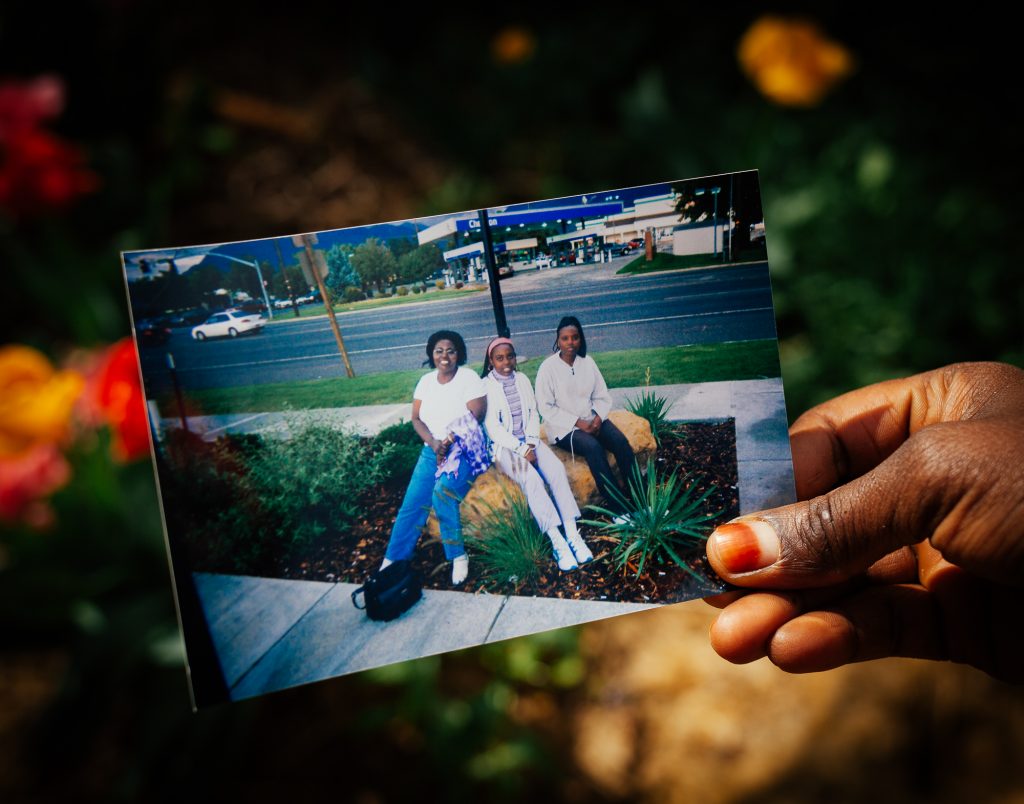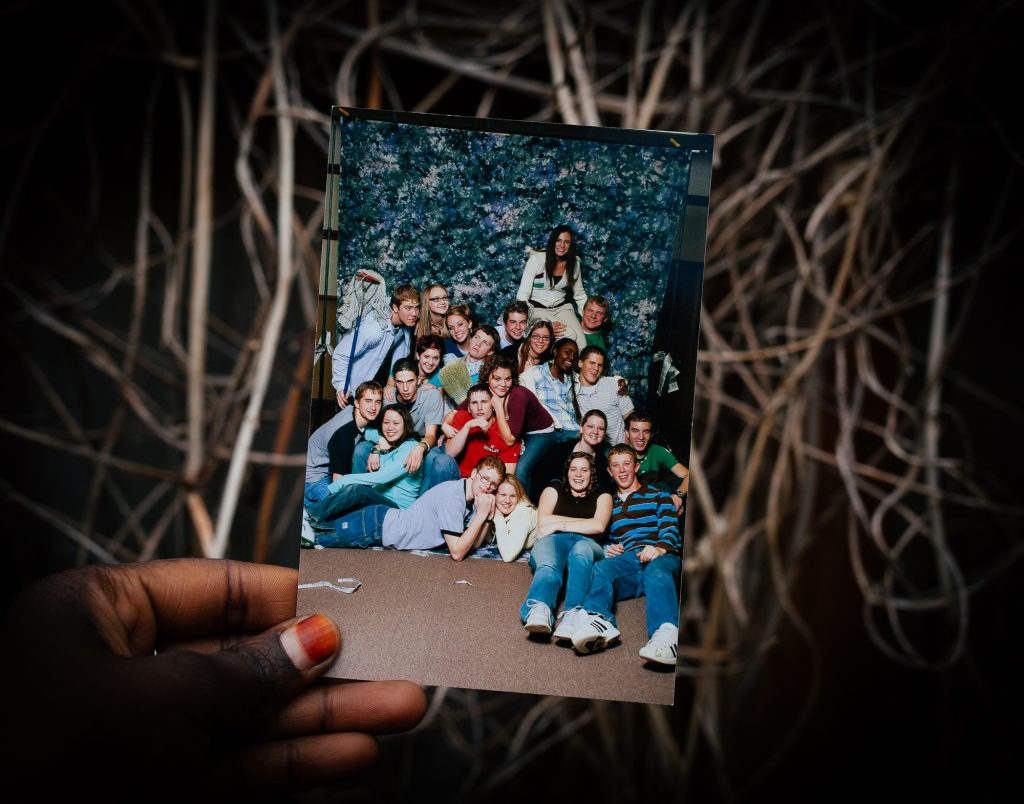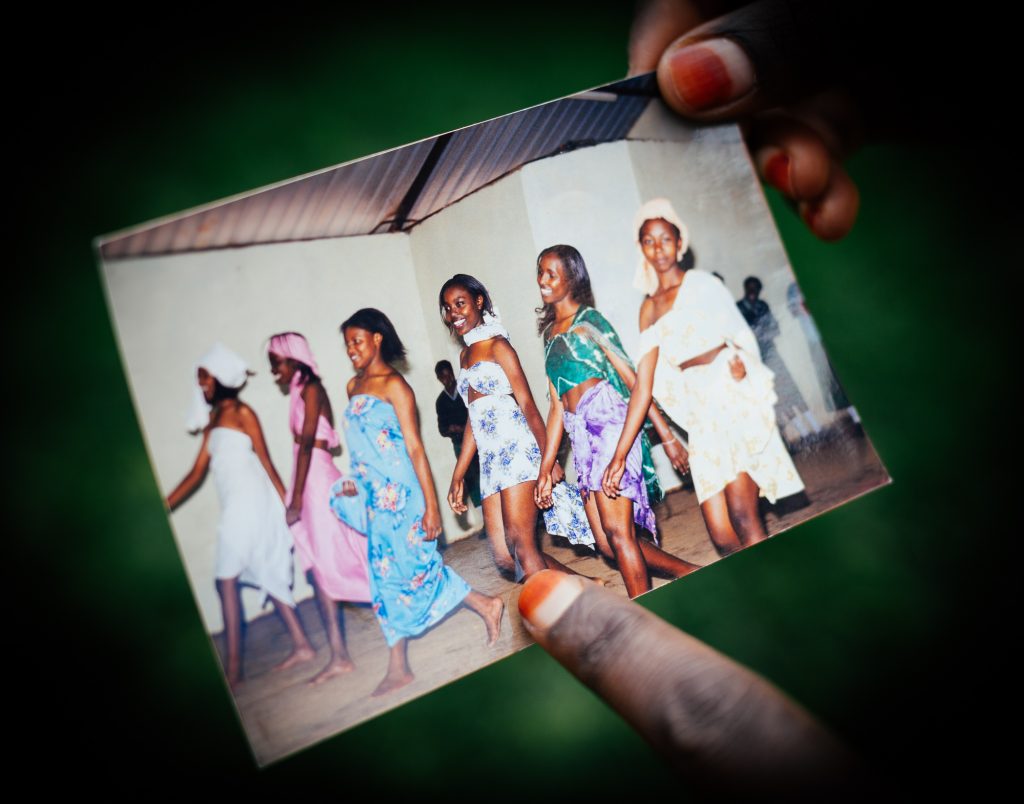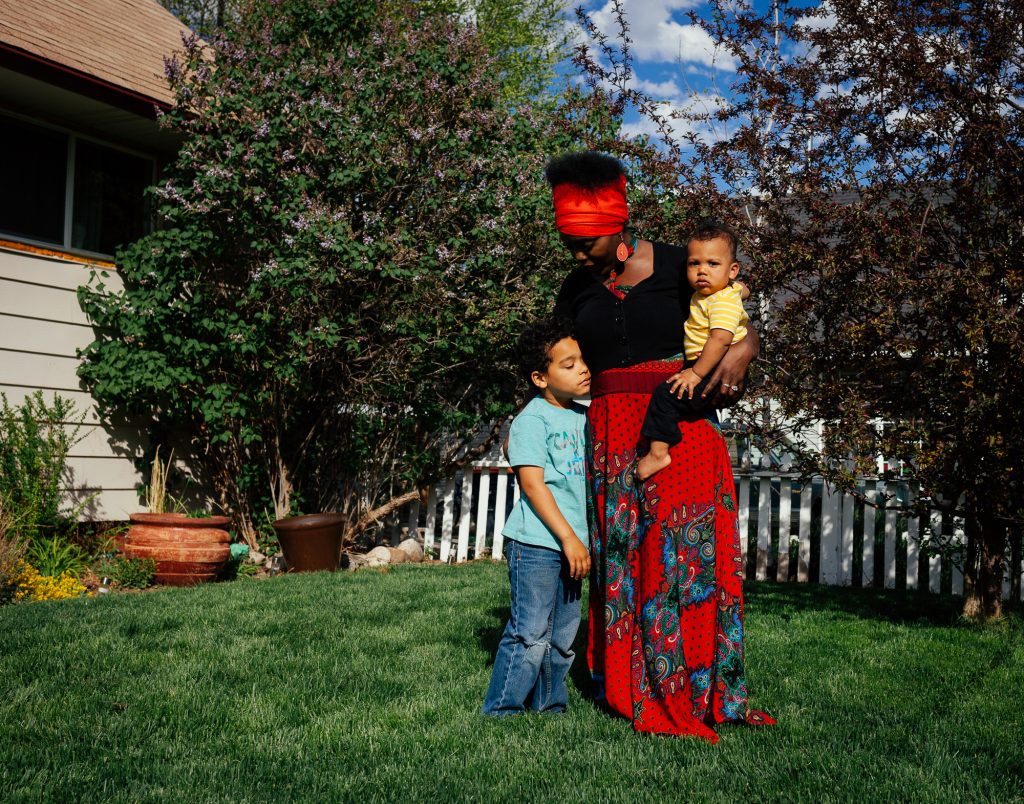
Childhood
Winnie grew up in Meru, Kenya – a town by the river. She was the fifth child in her family.

“Meru was a place where everybody knew each other. I would walk to school. There was no such thing as ‘helicopter moms’ back then!”
Her father grew sugar cane and had fruit orchards. She remembers climbing the mango and avocado trees and then going down to the river to eat fruit and chew on sugar cane.
“I would stay there and eat until I was in a fruit coma!”
There was this specific tree; Winnie can’t remember the name of the species, that would emit this natural perfume you would smell while walking at night. She cherishes her memories of the sound of crickets and how there was a type of bird with a call that served as an alarm. When it sang, it meant that night had arrived, and all the kids knew it was time to return home.
Family
Over the years, aside from her four biological siblings, she had just as many adopted siblings. She explains how adoption in Kenya isn’t as formal as it is in America, and it often involves taking in family members’ children. For example, when Winnie’s aunt died, they took in her three children. For Winnie, having her cousins transition to being her siblings was quite natural.

Winnie’s parents were always supportive of her and her siblings.
“Our parents were always there for us. They made sure we went to a private school to get the best education. I took it for granted, but they made sure we knew not everyone could get this kind of education.”
They were also strict and didn’t put up with any bad behavior.
Winnie’s father was one of the first people to be paid by the government to study at university after Kenya gained its independence in 1963. In Kenya, where “livestock is money,” he became a surgical veterinarian. Winnie’s father cared a lot about his children’s grades and would punish or reward them accordingly.
“If you fail, you know, you should be shaking in your boots. If you get an A, you get money in your account.”
Idaho
Winnie’s older sister Jackie applied to Idaho State University as a joke, thinking she would never get in. However, the school accepted her, and the family came together and started fundraising so she could go.

While studying in the US, Jackie found Shriners Hospital, a place where their other sister Mary, who suffers from Blount Disease (a growth disorder of the shin bone), could get help as a case study. Mary and Winnie’s mother came first, and then the rest of the kids followed. Winnie’s father stayed in Kenya, unable to leave his land behind. At the age of 16, Winnie started high school in Blackfoot, Idaho.

Adjusting
Winnie remembers feeling impressed by the cafeteria’s french fries and nuggets; something she thought of as a real treat. She also couldn’t understand why she would need to shave her legs. “I loved my beautiful leg hairs!” The other children asked her many strange questions like, “Do you wear clothes in Africa”? She played along, telling her peers that they wear coconut leaves on their boobs.
“It’s not that they are bad questions. It is just that they don’t know.” (audio below)

She had never contemplated going on a date while she was in Kenya, but in America it was normal.
“In Kenya, if you were going to see a boy, that meant he was your future husband. Once in America, I went on so many ‘ice cream dates’”.

Winnie was one of only three Black people in her high school and the only African. She started embracing her “blackness.”
“I felt Black, not African. I felt Black.” (audio below)
Winnie thinks the best decision she made in high school was joining the debate team. It helped mold her into who she is today. It was through debating that she embraced her accent and speaking in front of a crowd.

Knowledge
In high school, Winnie started addressing some of her classmates’ ignorance and confusion about Africa. She would cook them African food and try her best to correct their misconceptions. In college, this practice formalized when she joined the African Students Association of Idaho State U (founded in 1994 by her sister). Winnie was excited to be around other Africans, organizing dances, meals, poetry nights, fashion shows, and speaker events. Before she graduated, Winnie became the president of the ASA.

Meeting Antone
Antone first saw Winnie in the student union at Idaho State University. She had just bought a caramel apple, and a group of guys whistled at her.
“They whistled. I bit my apple and shook my head at them. He noticed that.”
Antone introduced himself, and Winnie remembers him offering her his sandwich.
“He shared a peanut butter sandwich, and it was the best I’ve ever had.”

Marriage
In the beginning, Winnie hid their relationship from her family and her friends. Her father has a stigma of interracial marriages, saying they are more prone to divorce. She could hear her father:
“You better not marry a white man. Don’t bring shame to our family.”

This didn’t stop Winnie from marrying Antone, and despite his views, Winnie’s father [in the above photo] came to the wedding.
“I cried and I got him a brand new suit.”
They had an African wedding in Idaho with 300 people, including lots of food and dancing. They did the traditional “money dance,” where Winnie danced with a basket on her head where people placed money. It was a style of wedding that many of the attendees hadn’t experienced before.
“Our wedding traumatized a lot of Idahoans!”
Twin Falls
Winnie ended up in Twin Falls in 2012 to be with Antone and start their family together.

Adjusting to life in Twin Falls was hard for Winnie. It wasn’t until she took a ceramics class with some elders from the community, and started volunteering at the local refugee center, that she began to feel at home.

To the best of her knowledge, Winnie is one of only two Kenyans living in Twin Falls.
“I feel like a pioneer – a Kenyan pioneer.”
The refugee population, specifically from Africa, is growing in Twin Falls, one of two cities in Idaho with refugee resettlement programs.
Miss Africa Idaho
In 2014, Winnie started organizing the Miss Africa Idaho Pageant. Unlike many pageants, this doesn’t involve bikinis – the contestants exhibit traditional outfits and talents. They also need to identify a change they are making in their local Idaho community, as well as in the African country they represent.
“This pageaent is the most fun way in which I can see people learning about the continent without attending lectures.”
More than half of the pageant contestants came to the USA as refugees. Recently there has been a backlash against refugees in Idaho, but the pageant community, in general, has received Miss Africa Idaho very well. If the pageant ever gets any negative press, Winnie is quick to invite her critics to come and experience it first hand by offering them free tickets.
American Kids, African Roots
Winnie admits that it is challenging raising “American kids,” especially with regards to discipline. Growing up her parents showed her “tough love, never timeouts in the corner. She hopes that her kids will appreciate their African roots, and to remind them of this, they all have a middle name meaning “warrior.”
“I would love for them to learn Swahili, so I have put stickers on everything. They know a bit. When people from Africa come to visit and see that kids are not fluent, I feel ashamed. If they don’t know how to speak Swahili, I will feel like a failure as an African mom.”

Cultural Ambassador
Winnie often speaks to the local community about Africa. For career day at her son’s school, she cooked “puff puffs” [see photo above], brought different African artifacts for the children to explore, and told them about the pageant she organizes.
“We have black princesses and queens in Idaho!”

Winnie hopes she can keep doing the cultural education work she is doing in Idaho, and even train others to be cultural ambassadors.
“I hope there will be more acceptance of diversity. I want people to be less ignorant about Africa and Africans. Africa is not a country; it is a continent. I want people to know this. Each country has more than 20 languages and more than 40 tribes.” (audio below)

Future
She dreams of one day building a school – maybe even one attached to a sustainable dairy farm since Idahoans are pioneers in dairy farming.
“I do have privilege. I want to share and recognize it; share and give back.”
Winnie plans on returning to Kenya soon. She hasn’t been back since she left at 16.
“The first thing I will do is I will pig out. Sit down on this big rock, dangle my feet in the water and chew on sugar cane.”
*Update: Since the interview, Winnie had a new baby boy (also with a middle name which means “warrior). She has also started her non-profit called Culture for Change Foundation and created the Urban Cultural Fashion Show which features the work of Idaho designers.
#FINDINGAMERICAN
To receive updates on the book release and exhibition of “Finding American: Stories of Immigration from all 50 States” please subscribe here. This project is a labor of love and passion. If you would like to support its continuation, it would be greatly appreciated!
© Photos and text by Colin Boyd Shafer | Edited by Janice May & Kate Kamo McHugh. Quotes are edited for clarity and brevity.








